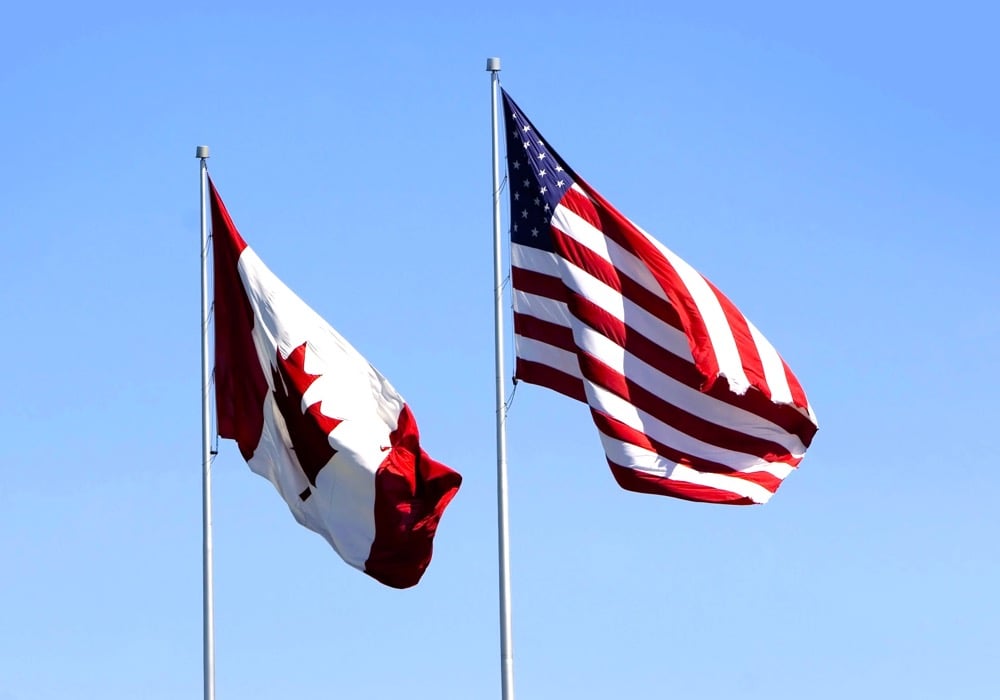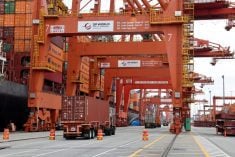DANZE, France, June 11 (Reuters) – Below-average rainfall in key canola growing areas of central France since spring has dampened farmers’ hopes of repeating the hefty yields seen last season, with any change in the weather now seen as too late to make a difference, experts say.
Concern has mounted that dry weather in the top three EU producers Germany, France and Poland could curb rapeseed yields and temper growing conditions that had forecasters expecting another large crop after a record in 2014.
The size of Europe’s crop has drawn heightened attention since western Canada’s Prairies were hit by severe frost late last month, wiping out many canola (rapeseed) fields.
Read Also

Canadian trade data delayed by U.S. government shutdown
Canadian international trade data for September will be delayed indefinitely due to the ongoing partial shutdown of the United States government, Statistics Canada said Friday, Oct. 24.
Rapeseed, the most produced oilseed in the European Union, is crushed to make oil for food and biodiesel fuel, and meal for livestock feed.
In Centre, a region that stretches southwest of Paris and is France’s largest producing area, a lack of rain since April, despite heavy downpours in early May, has meant yields were now expected below last year’s, said Julien Charbonnaud, regional expert for French oilseed institute Cetiom.
“Up to now, fields were looking beautiful but there was very little rain since April and when it came it was too heavy,” he said, explaining the soil could not absorb the moisture.
“Now it’s due to rain but it’s too late,” he said, looking out over rapeseed fields in the village of Danze.
Fields in northern France, which are naturally further behind in terms of crop development, were still at risk from dry weather and could use some rain now, he said. However, deeper soil there could allow them to handle a bit more weather stress.
Nationally, the farm ministry on Monday forecast the average winter rapeseed yield would fall 6.5 percent from last year to 3.44 tonnes per hectare. But yields and overall production would still be in line with the five-year average.
In Centre, harvesting is currently expected to be around 10 days earlier than usual, but forecast rain and cooler temperatures could push it back to mid-July, Charbonnaud said.
Further south, in another large rapeseed producing region Poitou-Charentes, yields were expected to fall at least 10 percent compared with last year, mainly due to the dry weather.
“On April 1 it looked as good as last year but it won’t happen because of the dry and cool weather. We would have needed wetter and warmer weather,” said Francois Chauveau, a member of the French oilseed producers’ group FOP and a farmer in Irais in the Poitou-Charentes region.
Flowers only stayed for three weeks compared with six usually because of the dryness, which limits the size of the pods and seeds, he said.
Crop were showing a bigger advance than in Centre, running close to three weeks ahead of their usual growth pace.














